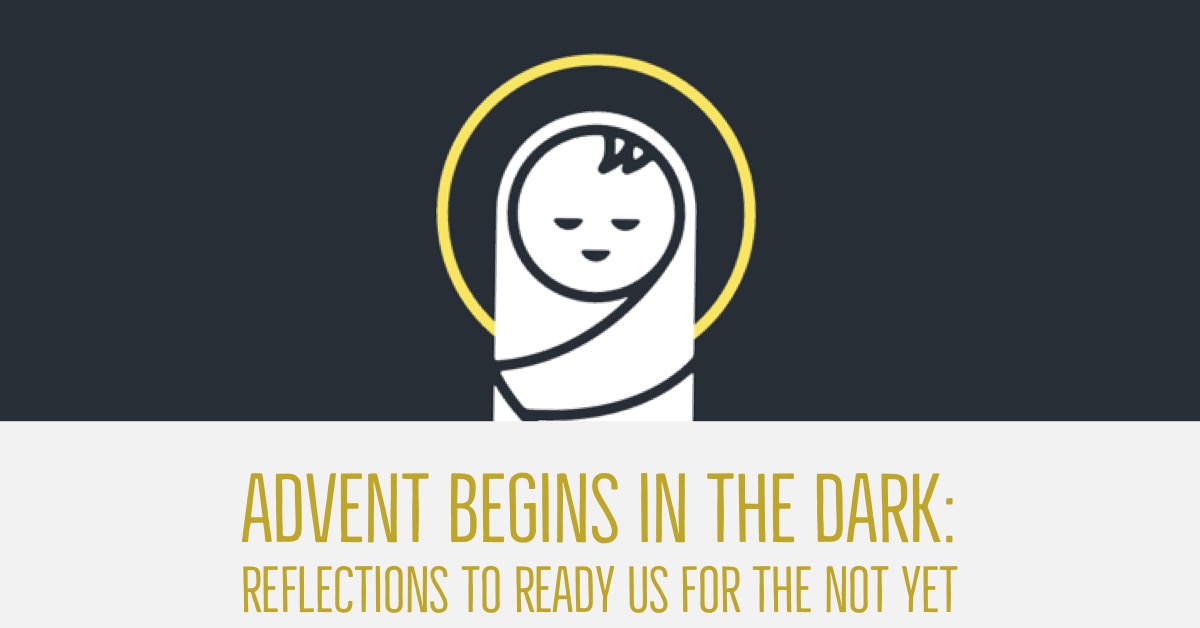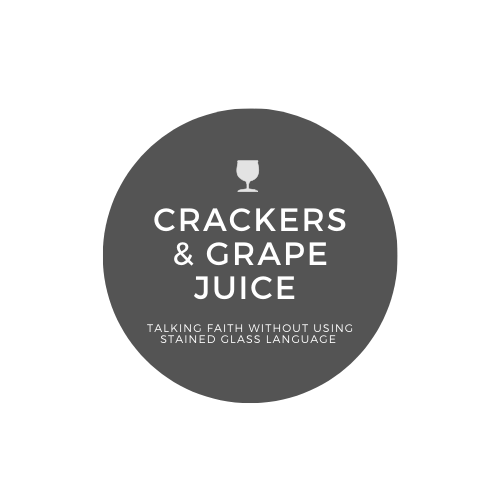
There are a group of women at my church who have met weekly since the second world war. Originally they gathered to sew bandages for the Red Cross. This was back when civilians were as concerned with war as those who had been charged to fight it.
Over the years their membership has gained and lost. And their work has changed, although I would argue it has not changed all that much. These days the Red Cross no longer needs people to make their wound dressings. These days that same group of women sews baby blankets.
Our local public hospital has so many births on any given day that they run out of the standard pink and white striped baby blankets that were so abundant in the private hospitals where I had my own children. And so when it is very cold outside, the hospital has been known to send infants home covered in brown paper bags.
These women from my church have stepped into fill that gap. Each week they dutifully sit at a table and sew loose stitches around small squares of soft, colorful fabric. And then one of the “younger” members of the group takes the pile home and uses her sewing machine to add a finishing stitch. Ensuring that the blanket will not unravel under the weight of its own absolute necessity.
For years I have often thought of that famous passage from Isaiah where we are told that the people will “beat their swords into plowshares.” But Fleming Rutledge rightly points out that the less well known (and let us be honest, less well beloved by our current stream of inarticulate peace at all costs theology) passage from Joel leads us into the opposite direction:
Proclaim this among the nations:
Prepare war, Stir up the mighty men.
Let all the men of war draw near,
Let them come up.
Beat your plowshares into swords,
And your pruning hooks into spears;
Let the weak say, “I am a warrior.”
The painful truth is that God has forever pushed his creation in the opposing directions of creation and destruction. And I do not favor one over the other. I suppose I know too many veterans to make that giant leap.
In mainline church culture, we love the idea of creation. Not the one we find in Genesis mind you, but the one we conjure in our own sin-sick hearts. We like the idea of being co-creators with the God of the Universe. Even if such a claim is antithetical to scripture.
Incidentally, no one is out there, excited, identifying as a co-destructioner with the Lord. It just doesn’t have the same ring.
What we forget is that the passages from Isaiah and Joel are both equally true. And these two meet their ends in the season of Advent. This is the season when the world prepares for a sentimental portrait of an infant lying in a manger. O Little Town of Bethlehem plays in the produce section of your local grocery store. Peanut’s Linus will lovingly recall the Christmas story from the Gospel of Luke for us on television. Certainly, these can all provide us with a warm glow amid the chaos of the weeks leading up the December 25.
But they only manage to tell half of the story. Where there is light, there was also darkness. Where there is joy, there is also judgment. When Jesus comes again, there will be creation and destruction. And as Christians, we are called to welcome it.
There is no harder time to be a Christian than at Christmas. Because it seems we are so deeply in charge of everything. My own heart and soul is racked with important things this time of year. The “fairness” of gift giving between my two young children. Menus for Christmas dinner. And of course the all-important question, What will I wear? in the midst of the beatific Bethlehem, I can easily turn a blind eye to Golgatha, not to mention the truth we repeat in the Eucharistic liturgy that “Christ will come again.”
Christ will indeed come again.
I would love to end with a charge for you to face the creation and destruction in your own life. Aren’t those the best sermons? They give you something to do. But the hard truth is that things will be created and destroyed in you regardless of how you respond. Your plowshares may be turned into swords. You really do not have any say in the matter. And in God’s eyes, creation and destruction are closer than we would like to admit. Because if the Advent season is trying to tell us anything, it is that we cannot have one without the other.
1 comment on “Beat Your Plowshares into Swords”
Comments are closed.

Thank you Sarah
Oh how I love the idea of experiencing the destruction in our lives. It really speaks to me. Makes me want to just tear into Joel once again.
Also, the challenge to face the creation and destruction of our own lives. WOW! What an insight. It is through destruction that we are created. I hope I read that correctly.
Merry Christmas